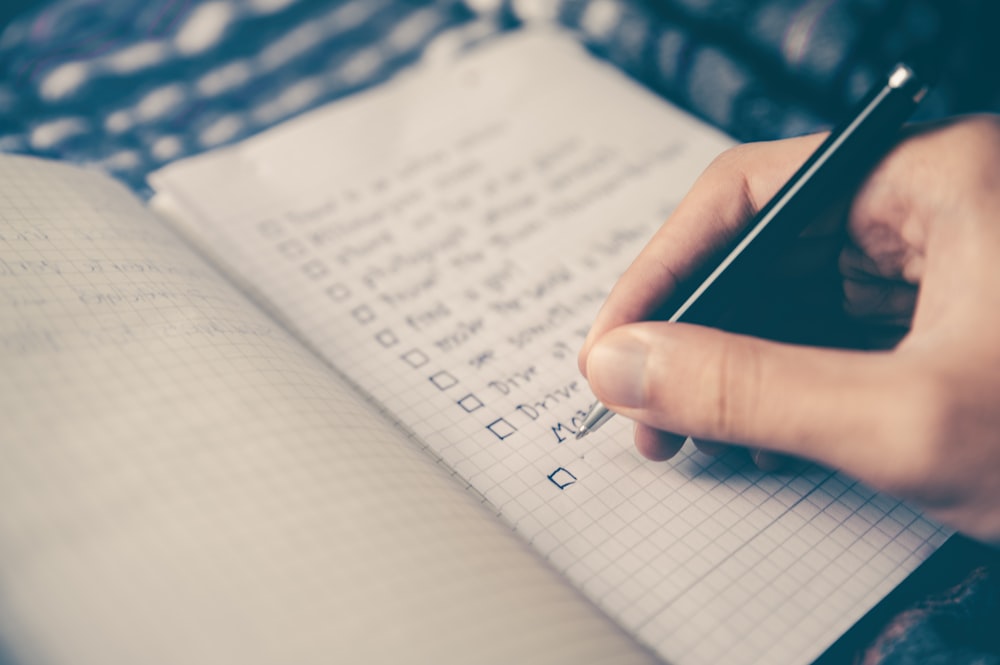Academic fatigue happens to all of us. Whether it's your entire freshman year or right before your SAT, everyone experiences burnout at some point. I had academic burnout at the end of my sophomore year in high school, but I came up with ways to prevent it, and by finals, I was back to my normal standard.
This year, I've been implementing these into my routine. Here are seven tips to prevent academic fatigue from happening to you this year.
Let us slide into your dms 🥰
Get notified of top trending articles like this one every week! (we won't spam you)1. Prioritize Sleep
Sleep is something that does not get enough recognition. Eight to ten hours of sleep a night makes a big difference to your academic performance and your mood in general. As you sleep, your brain processes information from the previous day during the last four hours of your cycle, so not getting eight hours of sleep may result in incomplete processing of some information.
If you think about it, the information you learned at school the previous day could not be fully processed or processed. This helps with academics because it ensures the information is retained in your brain, which will help on assessments. Also, you will be a lot happier when you have more sleep.
Photo by Glenn Carsten-Peters from Unsplash
Take the Quiz: Which Dorm Room Aesthetic Fits You the Best?
Are you a Coastal Girl or Earthy Boho Guy? Play to find out!
2. Make a Homework Schedule
Having a homework schedule is important because it will ensure that you are focused on your priorities and help you focus on all subjects. Here is an example schedule for homework and studying. First, focus on any tests or quizzes you have the next day.
Then, you will be prepared for your assessments and won't have to sacrifice your study time to sleep. Next, work on any projects or essays that are due soon. You don't need to work on these for long, but make some progress each day so you don't get stuck doing it all the night before. After that, take a break. You have earned time to relax and clear your head by now. I take ten-minute breaks because I feel that is how long I need to recharge. You should take however long you need, as long as it's not preventing you from getting to bed at a normal hour. Then, work on the hardest subject of homework you have, and then the next, and so on, until you are at the easiest subject. Doing the hardest first makes the subject after seem easy, so you don't get irritated doing your hardest homework at ten-thirty PM. While you're doing this, make sure to take breaks in between subjects. In this case, you could take a break after completing two subjects. Finally, set yourself a goal for time to be done with work. If you are only running a few minutes over, it's okay, but if it's eleven PM and you have three subjects left, just sleep. You can make up for the lost points on assessments.
3. Stay on Top of Your Work
Staying on top of your work is crucial to preventing burnout. Doing a little bit of a project every day for the week before it is due will prevent you from cramming it all in a few hours before the due date and will ensure you have time for your other classes. This will also make your workload seem lighter because you will have a medium amount of homework every day, instead of having light homework half of the time and a heavy workload the other half. Trust me, the heavy workload days take a toll on you, even if you don't realize it immediately.
4. Communicate with Teachers
This one might seem self-explanatory, but it's helpful to communicate with teachers when you are confused or overwhelmed. Teachers are there to help you learn, so asking additional questions will help you to learn more about the topic. It could also help improve your grade because that bit of extra help could be the difference between an A or a B.
Teachers can also help you plan out your schedule for long-term assessments or read over your writing before you turn it in. Either way, meeting with teachers won't hurt your grades at all.
5. Give Yourself Reasonable Goals
Reasonable goals are crucial to avoiding burnout because they ensure you aren't overextending yourself. For example, maybe a straight A+ in six AP classes isn't a reasonable goal because there won't be enough time to sleep and care for yourself. Now, I'm not saying that wanting to get good grades in advanced classes is bad but maybe aim for A's in those classes instead. Having big dreams is a great quality, but it must be within reason.
Photo by Tool., Inc from Unsplash
6. Get Involved
Getting involved in enjoyable activities can help you destress and prevent burnout. Maybe you like public speaking, so you join the debate team at school. This will give you a balance between school work and activities you truly enjoy, so it will seem like you are doing less than you are. Also, getting involved in new activities allows you to meet new people, which could lead to breaks in study time because you are hanging out with them.
7. Plan Ahead
Planning is crucial to staying on top of your work and preventing burnout. If you know that you have a tournament three hours away and won't be returning home until late Sunday night, plan specific times to complete your work. Maybe you work ahead during the week and then spend the car ride finishing your homework, or you do some homework in your hotel at night. Whatever it is, knowing your schedule and planning around it will help you stay ahead of your work.
If you've ever had burnout, you know it is hard to eliminate it. Try these tips, develop your own methods, and ultimately do whatever helps you to get out of it. If you start using these tips or others early, you might not even experience burnout at all.


















.jpg)


